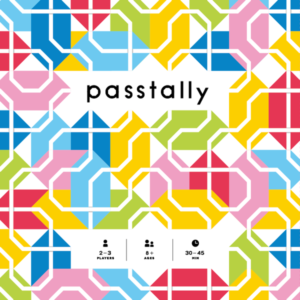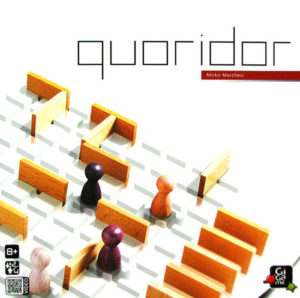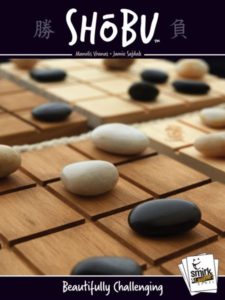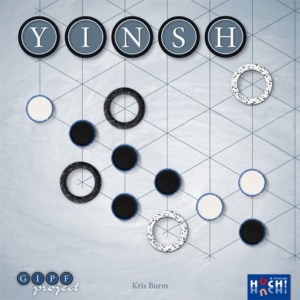- Learning time
- 5 minutes
- First play time
- 10 minutes
Chartae
Designed by: Reiner Knizia
Chartae is an object lesson in how games can provide surprising depth from incredibly simple rules.
The game merely consists of nine tiles, each tile showing a combination of land and sea. A starting tile is laid on the table and the other eight are stacked face-up.
One player is the land and the other the sea. Players take turns laying (or rotating) the tiles in a 3×3 grid, and your goal is to have the most connected tiles at the end of the game. Thus, if you’re playing sea and have five tiles connected by sea, that would beat my four tiles connected by land. If there’s a tie the player who played most recently loses. On your turn, you either add the top tile from the stack to the grid in whatever orientation you choose, or you can rotate a previously-laid tile 90 degrees clockwise. As soon as the ninth tile is placed, the game ends.
The guru's verdict
-
Take That!
Take That!
The entire undertaking, although fleeting, is a battle for control
-
Fidget Factor!
Fidget Factor!
Low - Chartae is an extremely short game
-
Brain Burn!
Brain Burn!
You have two choices - rotate a tile, or place a tile. Beyond that though... place a tile where and how? Rotate which tile? The entire game proffers you only four turns, so each decision is critical.
-
Again Again!
Again Again!
Nothing changes in Chartae other than the order of the tiles. It still gives a huge amount of variation, but all within a fairly narrow set of parameters - as clever as it is, it doesn't vibrate with variety so is best for players who like the short, tactical battle it offers.












Sam says
...although there is a little more going on than we hinted at, because in the early stages of the game the 3x3 grid hasn't been defined, so if you're looking at just two tiles on the table you can place anywhere around them, whereas the last two or three won't offer that much flexibility. The depth here is impressive: the rules couldn't be much simpler and yet every time you play there is the same dynamism to the experience. That said, I love a bit of theme in a game so an abstract really needs to shine to win me over. I'm glad I experienced Chartae but as much as I admire it, it's not something I yearn to play again and again.